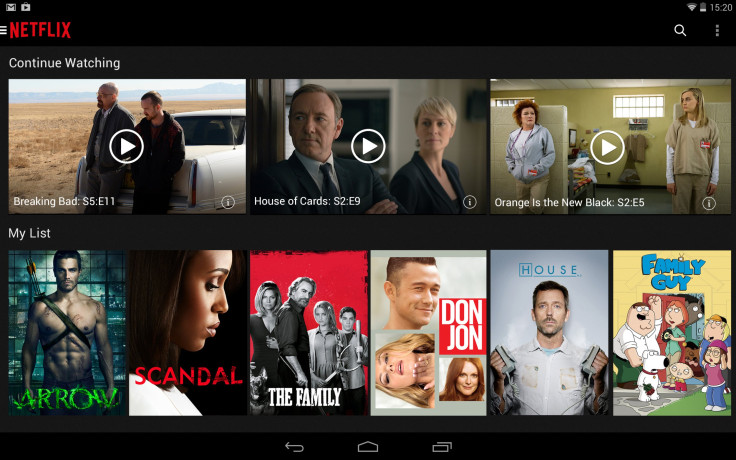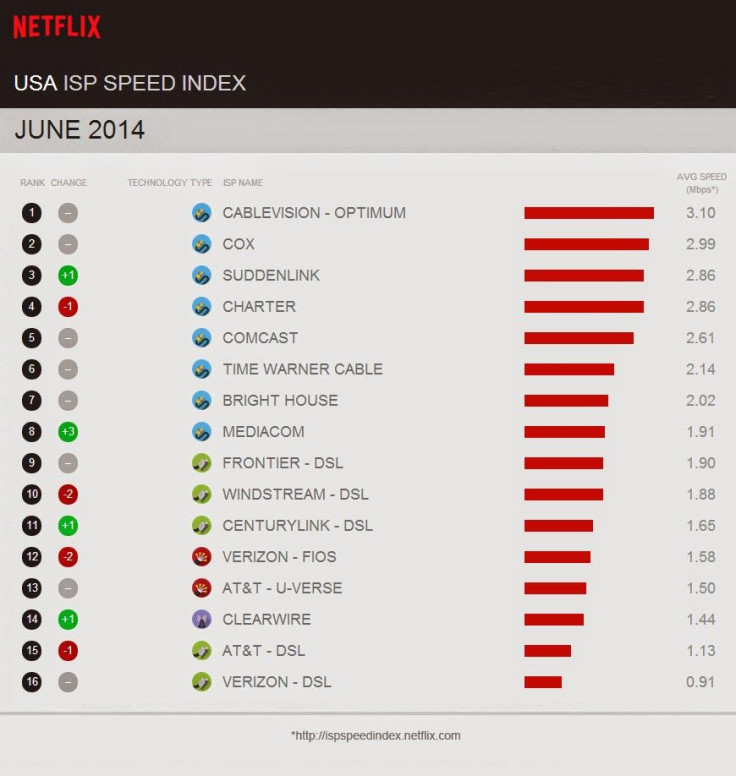Netflix Inks AT&T Deal To Pay For Faster Service, But Will It Work?

AT&T has joined the ranks of Internet service providers (ISPs) that Netflix is paying to deliver its streaming video service uninhibited to their mutual customers. AT&T Inc. (NYSE:T) confirmed the deal after Mashable broke the news Tuesday, following similar deals Netflix Inc. (NASDAQ:NFLX) made with Comcast and Verizon.
In what’s known as a “peering arrangement,” Netflix will have direct access to the AT&T network. The process “should be complete in the coming days,” according to an AT&T spokesperson -- but when will it’s U-Verse customers start benefiting?
Netflix has said that it is able to avoid congestion by paying for direct access to an ISP’s network. However, Verizon Communcations’ (NYSE:VZ) speeds have not risen since the company gave Netflix direct access to its FiOS network.
Every month, Netflix ranks ISPs by the average speeds by which its customers are able to stream its content. After entering into a deal with the streaming service a month earlier, Verizon’s FiOS speeds fell in May.
Netflix streaming speeds dropped for Verizon customers in June, two months after the two signed a peering arrangement. Verizon’s FIOS averages, which it touts as the “fastest speeds in the country,” have fallen behind older and less expensive services like cable and DSL.

Conversely, Comcast Corp.’s (NASDAQ:CMCSA) speeds have risen sharply since it signed a deal with Netflix. Three months after the two entered the arrangement, Comcast’s speeds rose 65 percent, a number that has remained steady as of June.
Chairman Tom Wheeler said last month that the FCC was launching an inquiry into how Internet traffic is routed and how it would be affected by the commission’s proposed net neutrality regulations. "The bottom line is that consumers need to understand what is occurring when the Internet service they've paid for does not adequately deliver the content they desire,” Wheeler said in a statement, “especially content they've also paid for.”
Netflix is no fan of the peering arrangements -- a method of evening out Web traffic that traditionally were quite common in the industry. Until recently, the deals took place to increase network speeds at no cost to content providers, but paid peering or “interconnect” deals have become quite common, according to analyst Dan Rayburn. Media companies “like Netflix have always paid for their transit connectivity, or Internet delivery costs,” he wrote.
© Copyright IBTimes 2024. All rights reserved.





















